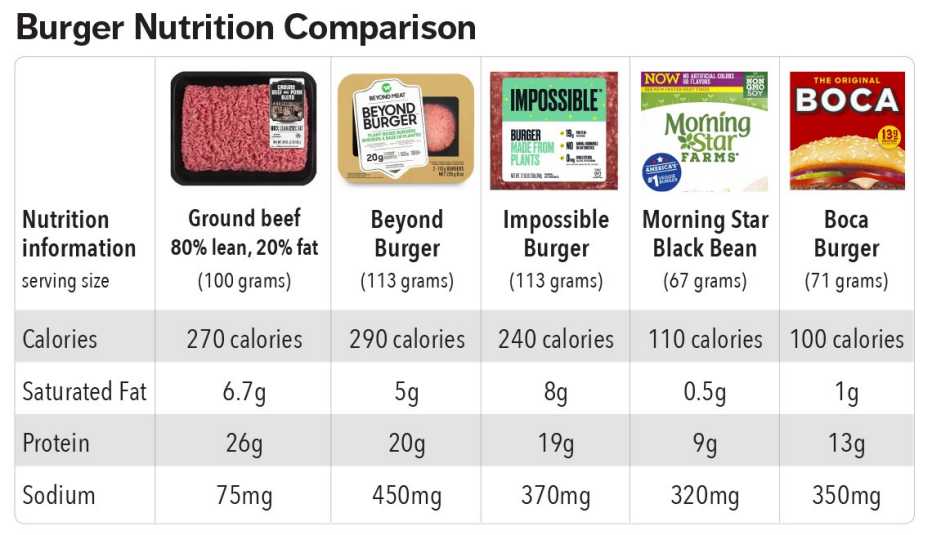Staying Fit
As we age, it is important to seek foods that are nutritious yet still please the palate.
The hamburger is an American classic that has continuously been reinvented on menus across the country yet, in the spirit of health and environmentalism, consumers have pivoted toward limiting meat consumption, spawning a plethora of patties that don't contain beef at all.


AARP Membership— $12 for your first year when you sign up for Automatic Renewal
Get instant access to members-only products and hundreds of discounts, a free second membership, and a subscription to AARP the Magazine.
The Impossible Foods and Beyond Meat brands are the latest companies to provide plant-based burger options they claim taste more like beef than any of their predecessors or competitors. But how do their taste and nutrition compare with ghosts of veggie burgers past, such as Boca or black bean? And do they actually taste like real burgers?
"This is a very interesting phenomenon because we're dealing with something [the plant-based Impossible Burger] that has gotten a lot of media coverage and people have embraced in the restaurant industry. Yet at the same time we're talking about eating foods that are closer to farms,” says Joan Salge Blake, a clinical associate professor of nutrition at Boston University. “You can't get something that's more processed than these kinds of new burgers, which kind of makes me scratch my head."


The patties are genetically engineered from soy protein isolated from plants and combined with other nutrients to get their meaty flavor.
Blake says that while there's about the same amount of fat in a beef burger as in an Impossible Burger, a beef burger packs more protein. A regular hamburger also has less of the saturated fat that is thought to be unhealthy for the heart. Still, Blake says, if you prefer to stick with meat, it's important to buy lean cuts.
Lean cuts of meat “are very fabulous sources of zinc and iron, and good sources of protein — and people like the flavor,” Blake says.
MyPlate, the nutrition guide published by the U.S. Department of Agriculture, recommends that one-quarter of the plate be a protein source, another quarter should be grains, preferably whole grains, and half of the plate should be fruits and vegetables.



































































